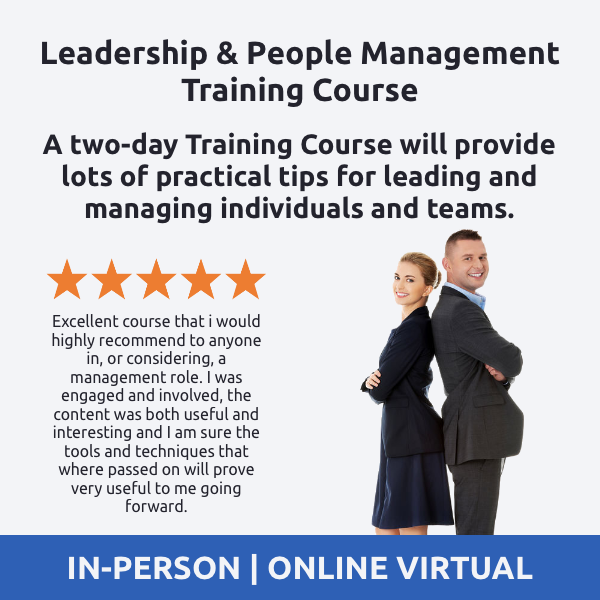19 Tips for Being a Better Manager
Here are 19 tips for being a better manager.
Identify Your Unique Skills
We all have at least one disruptive skill – an ability that sets us apart from others. You may have been honing yours for years, or you may be so good at it you don’t even notice it.
Knowing and understanding your unique skills is a great thing to do. Knowing what these skills are can be massively helpful, and once you know what they are you can begin to use them to your strengths.
Here are some ways to identify your unique skills:
- Be more aware of what you are good at – Some of the things we do that we are good at we may do unconsciously. Spend some time looking at what you do from a conscious point of view. A good way to spot them is when you feel successful, happy and invigorated. When you feel like that you know you are doing a good job.
- Listen to feedback – When someone tells you that you are doing something well, take it on board. Ask questions to fully understand what it is you are doing – was it behavioural, skills-based, process-based or a mixture of them all?
- Look at the everyday things, not for the extraordinary – Sometimes these skills are entwined in the everyday things that we do when we aren’t trying and as mentioned earlier unconsciously.
Change Your Behaviour
Developing yourself as a leader isn’t as easy as you may think. Changing your behaviour can be hard, frustrating and time-consuming.
There are though some roadblocks that may exist, that if removed, can make your route to self-development and improvement easier:
- Be Patient – Don’t expect to see results immediately. Yes attend training, get coaching and mentoring, out don’t expect them to make an immediate impact. Things take time, and in fact, most learning about behaviour comes from experience and not in a classroom.
- Take Responsibility for Your development – Don’t leave it to others to provide you with the skills you need. Get it into your mind that you are the person who needs to get out there and get the skills. You need to make things happen.
- Choose the right mindset – Beliefs can be a funny thing. The more we tell ourselves we can’t do something, the more we actually can’t do it. Believe in your ability to change and improve and you should see that you achieve more.
- Accept It Will Be Challenging – Real behavioural change takes time and hard work. Be prepared to face challenges you don’t foresee and deal with them head-on. Don’t let them slow you down.
- Don’t Get Distracted – Things may come up that seem more important and you may feel as though those things need your attention. Remember that change and development isn’t your full-time job, it should be weaved into everything that you do. You can learn from every experience.
- Maintain Traction – Once you begin to see a change, don’t assume you are there. There is no ‘glass ceiling’ when it comes to developing yourself, keep going – who knows where you may end up.
Increase Your Productivity
Being productive can be difficult when the pressure is on, but businesses today are looking for us to be more productive as much as possible.
The more productive we try to be, the worse we feel, in fact, many of us burn out.
Here are some things you can do to try and get more out of your day:
- Keep one to-do list: Include everything you need or want to do in one place. Don’t have some things in a diary, some on Post-its stuck on your PC and others in a list in your pocket. Put everything in one place. Writing things down helps get it from a thought in your mind to a structured list that you can focus on.
- Do the important things first: Before you leave the office on an evening, think about what the first things are that you will do in the morning. What are the most important things that you need to do, then do those things first thing. Use a prioritisation tool to help you to understand what those important things are.
- Schedule time for non-urgent things: It can be easy to get caught up in pressing issues. Block out time in your diary for the things that are not important (the things that usually get squeezed out. Draw up a plan of all of the regular tasks that you need to do and plan them into your diary.
- To-do lists are great things, but only if you make some progress and actually tick things off them. Be disciplined and use the following tips to help:
- Get three things done before lunch: Seeing yourself making progress will put you in the mindset that you are making progress. Knowing that you have accomplished things will make you more likely to want to do more in the afternoon.
- Break tasks down: Looking at one big project can be quite daunting and causes us to procrastinate. Break tasks down into smaller chunks and set yourself goals towards those, maybe even hourly targets.
- Do similar things together: Our mind strived on repetitiveness, even if we do find it personally boring. Build momentum by doing similar things at the same time.
Managing Your Energy
As businesses demand more from people who work within it, employees have to try and keep up.
You can’t make the day any longer but can do some things to attempt to replenish your energy.
Here are for simple things that you can do to help you work smarter and prevent yourself from burning out:
- Take regular breaks – This almost seems counterproductive when you are busy, but getting away from your desk or away from the task you are working on will help you to come back to things with a fresh view. Take a few minutes, grab a drink or just a quick wander to another part of the office, then come back and stuck back into things.
- Say thank you to people – Being generally positive can boost your energy levels. It makes you feel good and others feel good. They may even compliment you back making this process even better,
- ReduceInterruptions – Carry out those tasks that need real concentration away from phones and e-mail. Move to somewhere else or switch them all off. If something is an emergency, that person will find a way to get in touch with you.
- Do the things you like – Try to find the things you like doing and understand the things that wear you out. Do more of the stuff you like and re-frame the things that you don’t. Look for the benefit TO YOU in all tasks.
Leadership and Management Training Courses
We deliver a number of training courses that can further support you with all of the above. Take a look at our management and leadership skills training courses to get more useful tips.




